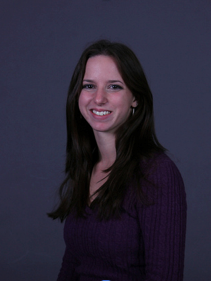For many college students, pursuing undergraduate research is a way to prepare for a career, make professional connections or set the stage for future graduate work. For Winona State University spring 2014 graduate Maria Noterman, undergraduate research is a personal passion.
Growing up in small town Adams, Minn., Noterman was acutely aware there was something special about her family. Her younger brother William, or “Willie” as they call him, was the only child in the area with Down syndrome. Willy also has autism and oppositional defiance disorder.
“There weren’t many special education programs available, and it was difficult to find support for him,” she said. “A place for him to fit in and to have access to the resources he needed.”
When Noterman left home to attend school at Winona State, she originally intended to enter WSU’s well-known nursing program, but thoughts of Willie and the challenges he faced inspired her to look deeper.
“I have always been interested in the neurological abnormalities of disease and how medical treatments can help alleviate these problems,” Noterman said. “My research involves looking at the connections in the brain and seeing how they’re different in individuals with Down syndrome and neurodegenerative disorders such as Alzheimer’s disease. In the future I’d also like to look at psychiatric disorders like autism to assess what’s going on, what could be fixed or improved.”
Noterman graduates from WSU with a degree in biochemistry and a minor in psychology. She plans to attend the University of Iowa: Carver College of Medicine and will enter the biosciences program to earn her Ph.D.
Noterman is grateful that she received an education that will make her more competitive in her future career. She believes that Winona State helped her achieve her educational goals.
“WSU has many opportunities for students to design and carry out their own research projects. This gave me a jump-start on my research experience to help me to get summer internships and eventually into graduate school,” she said.
Willie is now 16 years old and a resident at the Chileda Institute in La Crosse, Wis., a nationally recognized program for youth with cognitive challenges and exceptional needs.
Noterman hopes the research she’s pursuing will one day lead to breakthroughs that will help improve the lives of people like her younger brother.
“He’s in a good place and he’s doing well, but he deserves the best. He deserves to lead a happy, full life,” said Noterman.

